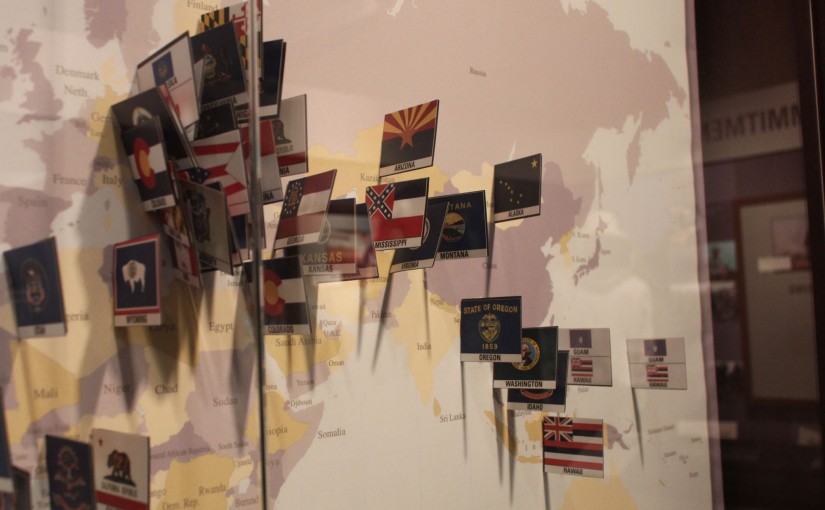Post-9/11, the National Guard serves – and sacrifices – abroad

Cronkite News
Sgt. Mary Herrera answered her country’s call after 9/11 and was deployed to Iraq where she was shot twice in the right arm, a memory that she says is still fresh 10 years later.
But Herrera was not active military when she was wounded overseas: The Tucson resident was a member of Arizona’s Army National Guard.
Once belittled as “weekend warriors,” guardsmen have been serving – and dying – overseas in unprecedented numbers since 9/11. In Arizona alone, 12,000 National Guardsmen have been deployed more than 12,000 times to Afghanistan and Iraq.
Nearly 800 National Guardsmen from across the country have sacrificed their lives in those wars, and seven of the fallen were from Arizona, said Anne Armstrong, deputy director of National Guard Educational Foundation. The foundation runs the National Guard Memorial Museum, where a memorial wall has the names of those guardsmen who died in the war on terror.
“When ordinary citizens think of the National Guard, they think of somebody putting on a uniform and running out filling a sandbag and preventing the flood from coming,” said Armstrong, “or doing hurricane relief, tornado relief and disaster preparedness.”
But “National Guardsmen are, in fact, soldiers just the same as every other soldier” and they are sent to the front when needed, she said, even that means a dangerous warzone on the other side of the globe.
The Guard is a part of the reserve components of the U.S. armed forces, drilling one weekend a month and two weeks in the summer while the guardsmen hold down civilian jobs. The Arizona National Guard currently consists of 5,000 Army and 3,000 Air National Guard troops.
“They are juggling two lives” as civilians and soldiers, said Herrera, who was a student in community college when she enlisted.
In Arizona, as in other states, units of the Guard are often called on by the governor for state emergencies, such as wildfires, floods and search-and-rescue missions, said Karen Craig, a spokeswoman for the Enlisted Association National Guard of Arizona.
But while they are most often called in response to natural or manmade disasters, National Guard units wear a second hat of being part of the strategic reserve to the active military, said Lt. Col. Michael Krouse, executive director of National Guard Association of Arizona.
“Prior to 9/11, the National Guard is used as a last resort if we need somebody to call,” Krouse said.
But 9/11 “changed the face of the National Guard,” Armstrong said.
From that day on, Guard units have regularly been deployed to military operations in Afghanistan and Iraq, said Adrian Borunda, a spokesman for the Arizona National Guard.
“There is a big directional change in the use of National Guard,” Armstrong said. “We have gone from being strategic to being an operational force. We are no longer just sealing sandbags, although we are still doing that.”
Calling guardsmen in to the global wars on terrorism has taken some of the burden off active-duty troops, Krouse said.
The shift has also meant that instead of getting hand-me-down equipment from the regular services, the National Guard is now “receiving new, state-of-the-art equipment for those units and personnel ordered to deploy into the fight,” said Craig.
But whether active-duty or in the National Guard, Herrera said, “your duties are the same, you are still trained for war.”
The experience of battle is still “surreal” for Herrera. But she says the memories of those days engraved into her everyday life now – and that she feels the pains of her injuries every day, too.
Herrera said she owes her recovery from her injuries to the support of her fellow guardsmen.
“We are all homegrown, from the same town, same state. There is more of family tie there,” she said.
And as Veterans Day weekend approached, she was eager to stand up for her fellow guardsmen as “the most heroic, the most humbling, and the most unselfish Americans.”
“When you look at the red on the flag, you should remember every single life that was sacrificed in order for you to have the freedom that you have,” Herrera said.















